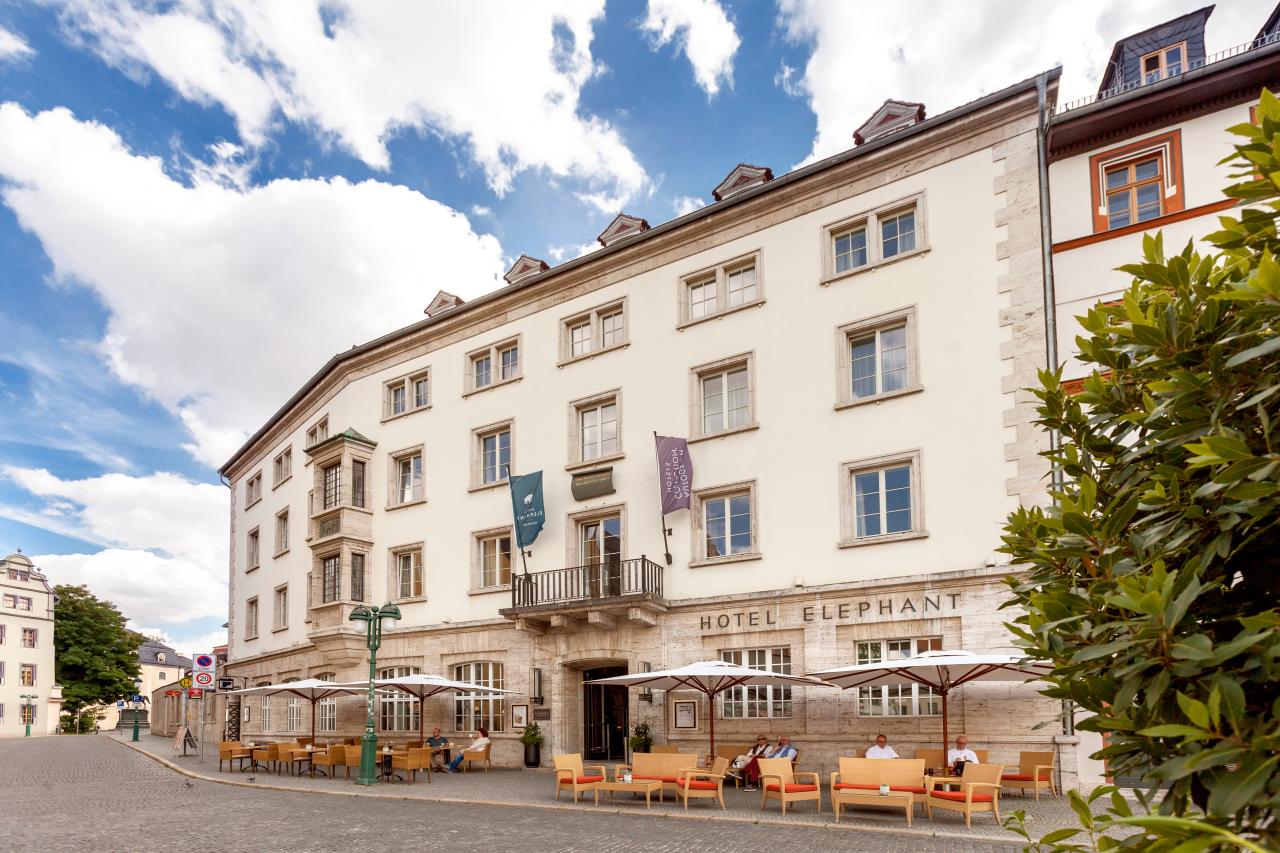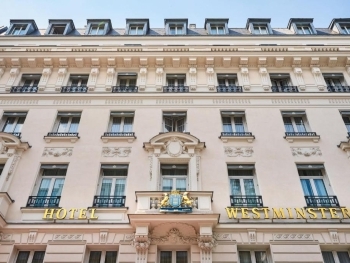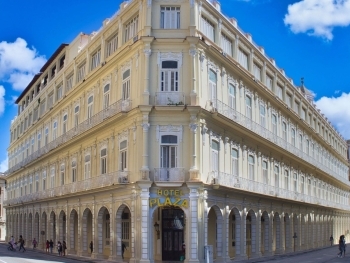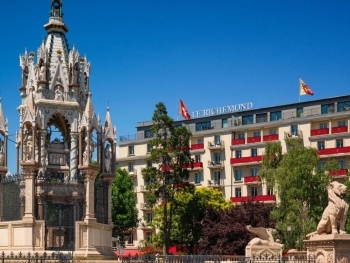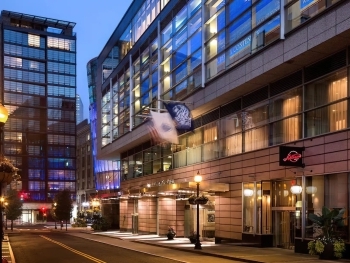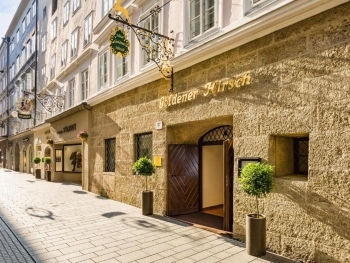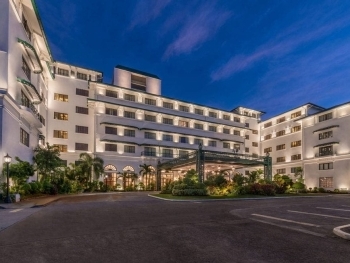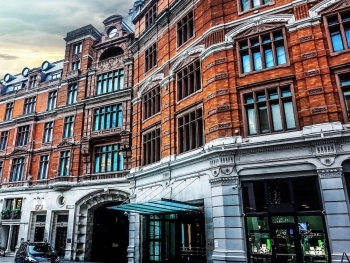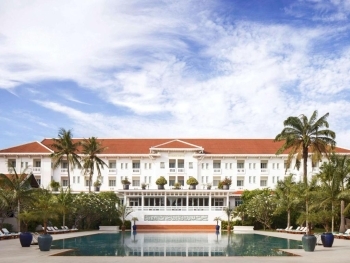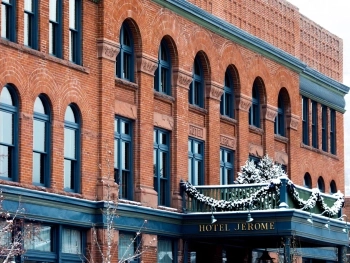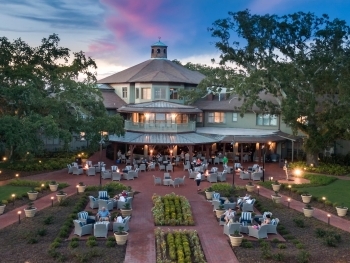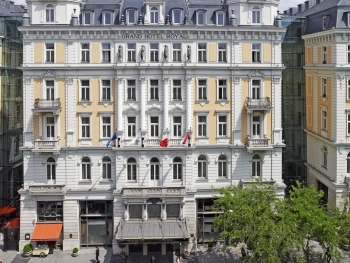Hotel Elephant in Weimar, Germany, stands as a testament to the rich cultural, historical, and architectural heritage of the city. This iconic hotel, with its roots dating back to the 16th century, has been a silent witness to centuries of European history, hosting an array of notable figures from various walks of life. From literary giants to political leaders, Hotel Elephant has been a hub of intellectual and cultural exchange, making it much more than just a place to stay.
Historical Overview
Early Beginnings
The origins of Hotel Elephant can be traced back to 1696, when the establishment first opened its doors. Initially, it served as a modest inn, providing shelter and sustenance to travelers passing through Weimar. The hotel's name, "Elephant," is believed to be inspired by the exotic animal that symbolized strength, wisdom, and majesty, characteristics that the hotel aspired to embody.
18th and 19th Centuries
During the 18th century, Weimar emerged as a cultural epicenter, thanks to the patronage of Duke Carl August and the presence of luminaries such as Johann Wolfgang von Goethe and Friedrich Schiller. Hotel Elephant became a favorite meeting place for these intellectuals. Goethe himself was a frequent visitor, often dining at the hotel and engaging in lively discussions with fellow thinkers.
In the 19th century, the hotel underwent significant renovations to accommodate the growing number of guests and to keep up with contemporary standards. It was during this period that Hotel Elephant began to gain a reputation as a luxurious establishment, attracting visitors from across Europe.
20th Century: A Witness to History
The 20th century was a tumultuous period for Germany, and Hotel Elephant was not untouched by the political upheavals. During the Weimar Republic, the hotel continued to be a cultural hotspot. However, its most challenging times came during the Nazi era. Adolf Hitler visited the hotel multiple times, and it was reportedly one of his favorite places to stay. The hotel even hosted the infamous Gauforum, a Nazi administrative complex.
After World War II, Weimar became part of East Germany. The hotel fell into disrepair during the GDR era, but it was also during this time that efforts to preserve its historical significance began. The fall of the Berlin Wall and the subsequent reunification of Germany marked a new chapter for Hotel Elephant.
Modern Era: Restoration and Renaissance
In the 1990s, extensive restoration efforts were undertaken to return Hotel Elephant to its former glory. These renovations focused on preserving the historical charm while incorporating modern amenities. The hotel reopened in 1993, once again welcoming guests from around the world.
Today, Hotel Elephant is part of the Autograph Collection by Marriott, ensuring high standards of luxury and service. It continues to be a preferred destination for travelers seeking a blend of history, culture, and comfort.
Architectural Significance
Hotel Elephant's architecture is a blend of various styles, reflecting the different periods of its existence. The building showcases elements of Baroque, Classicism, and Bauhaus, making it a unique architectural landmark.
Exterior
The hotel's façade is characterized by its elegant symmetry and classical proportions. The entrance, with its grand portico and intricate detailing, sets the tone for the luxurious experience that awaits inside. The building's exterior has been meticulously preserved to maintain its historical authenticity.
Interior
The interior of Hotel Elephant is a testament to its rich history. The lobby exudes an old-world charm, with its high ceilings, chandeliers, and period furniture. The public spaces are adorned with artwork and memorabilia that pay homage to the hotel's illustrious past.
The rooms and suites are designed to offer modern comfort while retaining the historical ambiance. Each room is individually decorated, featuring a blend of antique furnishings and contemporary amenities. The careful attention to detail ensures that guests experience the luxury and sophistication that Hotel Elephant is known for.
Cultural Impact
Hotel Elephant's cultural significance extends beyond its architectural beauty and historical importance. It has been a gathering place for artists, writers, and intellectuals, contributing to the vibrant cultural life of Weimar.
Literary Connections
The hotel's association with literary figures, particularly Goethe, has made it a pilgrimage site for literature enthusiasts. Goethe's frequent visits and his fondness for the hotel have been well-documented, and his presence continues to be felt in the hotel's ambiance. The hotel's library houses a collection of works by Goethe and other German literary giants, offering guests a chance to immerse themselves in the literary heritage of Weimar.
Artistic Influence
Hotel Elephant has also been a muse for artists. The hotel's art collection includes works by notable artists, both past and present. The elegant interiors and the historical significance of the building have inspired numerous artistic creations, making it a living gallery.
Political and Historical Events
Over the centuries, Hotel Elephant has played host to a range of political and historical events. From clandestine meetings during the Enlightenment to being a silent witness to the rise and fall of the Nazi regime, the hotel has seen it all. These events have added layers of historical depth to the hotel's story, making it a subject of interest for historians and political analysts.
Hospitality and Dining
Hotel Elephant is renowned for its impeccable hospitality. The staff is trained to provide personalized service, ensuring that each guest feels like a part of the hotel's storied legacy.
Accommodations
The hotel offers a range of accommodations, from standard rooms to luxurious suites. Each room is equipped with modern amenities, including high-speed internet, flat-screen televisions, and minibars. The suites offer additional features such as separate living areas, balconies with views of Weimar, and luxurious bathrooms with spa-like amenities.
Dining
The hotel's restaurant, Anna Amalia, named after the Duchess Anna Amalia of Brunswick-Wolfenbüttel, offers a fine dining experience that combines traditional German cuisine with contemporary culinary techniques. The restaurant sources local ingredients to create dishes that reflect the rich culinary heritage of the region.
The hotel's bar, Zum Schwarzen Bären, provides a cozy setting for guests to enjoy a selection of wines, cocktails, and local beers. The bar's décor, with its dark wood paneling and vintage furnishings, evokes the charm of a bygone era.
Hotel Elephant Weimar is a living monument to the cultural, literary, and political history of Weimar and Germany. Its walls have witnessed the ebb and flow of history, and its halls have echoed with the voices of some of the most influential figures of the past few centuries. Today, it stands as a symbol of elegance, luxury, and historical significance, offering guests a unique opportunity to step back in time while enjoying the comforts of modern hospitality. For anyone visiting Weimar, a stay at Hotel Elephant is not just recommended; it is essential to fully appreciate the rich tapestry of the city's heritage.
